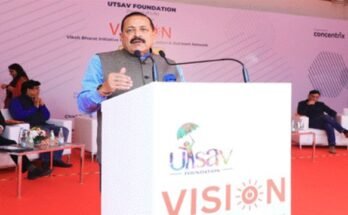India’s demographic dividend is also its biggest challenge as the country is up against problems of employment generation and employability, Hindustan Unilever Ltd Chairman Harish Manwani said today.
Businesses will have to work with educators and government to frame skill development programmes in order to ensure that the workforce of tomorrow has future-ready skills, Manwani said while addressing shareholders at HUL’s 84th AGM.
India has the youngest population profiles in the world with over 65 percent of its population below the age of 35.
“While this can become a demographic dividend for the country, herein also lies India’s biggest challenge. The challenge is two-fold: of creating enormous employment generation opportunities and raising the employability and skills of the Indian youth,” HUL said in a statement quoting Manwani.
He said businesses must step in to lift the capabilities and put as much emphasis on developing shop-floor workers as managerial talent.
Manwani, however, said India is well positioned to leapfrog with the technological advances and avoid the trap holes that the rest of the world has experienced in their journey from ‘developing’ to ‘developed’. Stressing on how technology can be a double-edged sword, he said it has the potential of restructuring not just global business models but the nature of work.
“Companies will need to stimulate innovation, accelerate digital transition, reduce costs and run their businesses more efficiently to face the challenges of this new world,” he added.
On the importance of innovating for the future, Manwani said businesses need to constantly innovate in order to grow.
“This requires companies to embrace technology and creativity and bring both ‘magic and logic’ into their product experience and go-to-market models,” he said.
In order to grow, companies need to constantly innovate across their value chain, invest in new business models, Manwani said. Moreover, it is important to create non-hierarchical, outcome-based organizational structures and build a diverse talent base that has skills and capabilities to operate in a digital world, he added.
“Most importantly, business needs to re-imagine its role in society and commit to doing well by doing good,” Manwani said.
Note: News shared for public awareness with reference from the information provided at online news portals.



